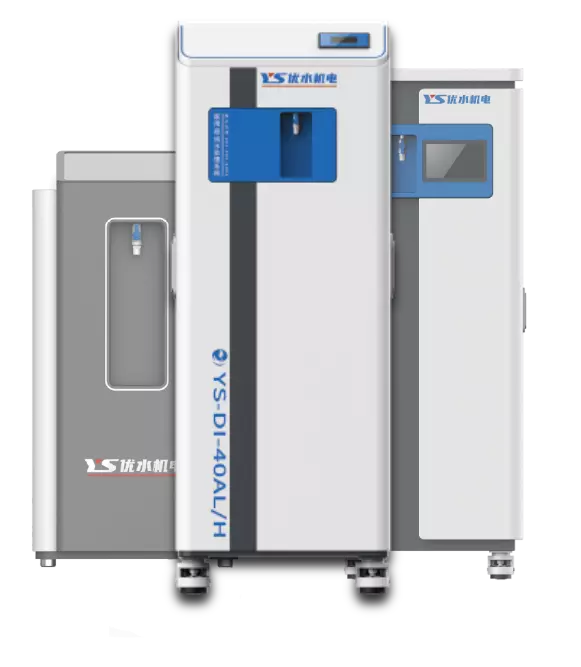Utilizing Pureness: The Science Of Ultra Filtered Aqua Solutions

In an age where cleanness is paramount, the demand for ultra pure water system s has surged across multiple industries. From medications to semiconductor manufacturing, the need for water that meets unusually high standards is essential. Highly pure water, often referred to as ultrapure water, is not just filtered water; it is rigorously processed to remove contaminants and impurities to levels that exceed conventional filtration capabilities. As innovation advances, so too do the techniques used to obtain this essential element.
Premium ultra-pure water systems utilize state-of-the-art filtration techniques, including reverse osmosis, ion exchange, and advanced oxidation. These systems are engineered to produce water that is nearly free from ions, chemical residues, and microbial contaminants. Grasping the mechanics behind ultra-pure water filtration systems is vital for industries that depend on the highest quality water to ensure product safety, security, and efficiency. As we explore further into the mechanisms that power these systems, we will discover the detailed processes that make ultra pure water an essential asset in the current world.
Grasping Ultra-Pure Water
High-purity water is defined as water that has been processed to eliminate all pollutants, including carbon-based and non-organic substances, to achieve a level of refinement that is often measured in ppm or parts per billion. This high level of cleanness is vital for numerous applications, particularly in sectors such as drug manufacturing, biotech, electronic manufacturing, and scientific labs, where even the smallest contaminant can cause significant issues in process integrity and product integrity.
The procedure of achieving high-purity water often entails a multi-step refinement system that may feature RO, DI, and UF. These state-of-the-art high-purity water refinement systems work in tandem to destroy particles, suspended particles, and microbes. Each step of filtration is crafted to target targeted impurities, guaranteeing that the final product fulfills strict specifications set by industry guidelines.
High-quality ultrapure water systems are crucial for uses such as chemical synthesis and scientific testing, where unwanted elements can influence findings and outputs. The ongoing need for trustworthy ultrapure water solutions underscores the value of comprehending the methods and procedures involved in creating water that satisfies the most stringent purity requirements.
Innovations in Highly-Purified Water Processes
Ultra-pure water processes make use of multiple advanced technologies to achieve the highest levels of clarity needed in industries such as pharmaceuticals, microchip manufacturing, and laboratory settings. One core method is reverse osmosis, which delivers a notable diminution in pollutants by pushing water through a selective membrane. This technique efficiently removes contaminants, germs, and additional pollutants, making it a vital step in creating pure water. The efficiency of reverse osmosis is often improved by initial treatment systems that eliminate larger contaminants and chlorine that could compromise the filtration system.

Another important method involved in ultra-pure water processes is deionization technology, which employs ion exchange resins to eliminate ionized salts and impurities from water. This technique is particularly successful in achieving low conductivity levels, necessary for applications that need highly-purified conditions. The method works by trading undesirable ions in the water with safe ions from the resin, ensuring that the final water output meets high purity standards. Such systems can be configured in series with other filtration methods to boost effectiveness and performance.
UV treatment is also a key part to ultra-pure water methods, providing a safe method for sanitization. This technology employs UV light sources to destroy microorganisms by disrupting their cell structure, ensuring that the water is devoid of harmful microorganisms. When combined with RO and ion exchange, ultraviolet treatment boosts the purification of the water, making it suitable for critical applications in the medical field and scientific research. Together, these approaches form a complete approach that fulfills the specific demands of fields requiring ultra-pure water.
Applications and Importance of High-purity Water
Ultra-pure water systems play a key function in various industries, notably in chip manufacturing, drug production, and laboratory research. In microchip fabrication, a single impurity can cause defects in microchips, making high-purity water necessary for rinsing and temperature control processes. This high-standard high-purity water system guarantee that the water used does not add impurities, which helps preserving item purity and efficiency.
In the medicinal industry, high-purity water purification systems are essential for pharmaceutical formulation and the creation of IV solutions. The presence of foreign substances can influence the performance and integrity of drug products. As a result, strict regulatory standards require that the water used is of the utmost quality. This promotes regulatory conformity and enhances patient assurance in healthcare treatments and products.
Moreover, ultra-pure water is necessary in scientific laboratories, where it is used for making preparations, mixes, and sterilizing glassware. The accuracy of experimental results often depends on the quality of the water used. By harnessing advanced treatment techniques in ultrapure water systems, researchers can remove factors related to water impurities, leading to increased and consistent outcomes in laboratory studies.
